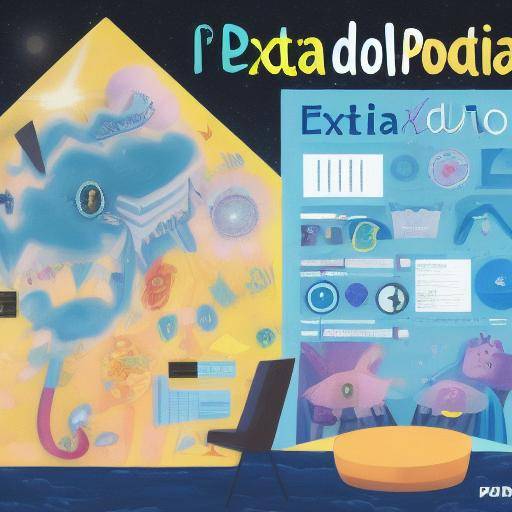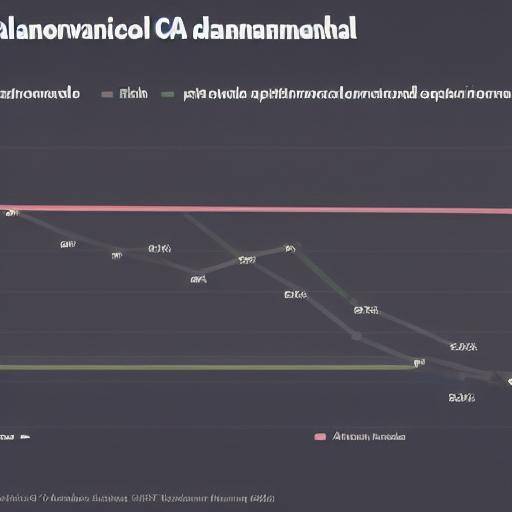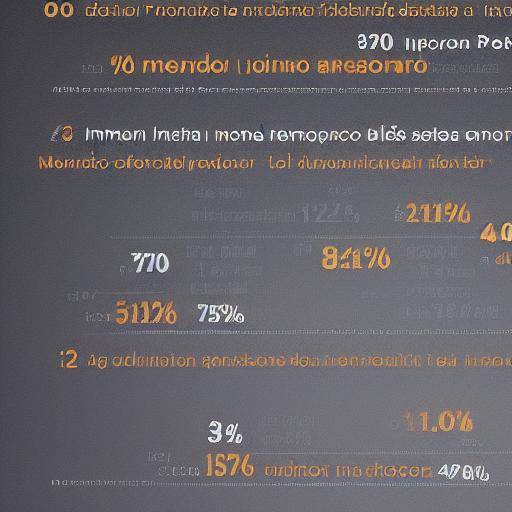
Introduction
Have you ever wondered how your perception of abundance influences the decisions you make in your personal and professional life? The mindset of abundance, understood as the belief in the unlimited availability of resources, time and opportunities, not only impacts our vision of the world, but can also influence the way we address decision-making and long-term planning. In this article, we will explore in depth the impact of the mindset of abundance in decision-making, analyzing its importance, benefits and challenges, as well as its relation to strategic planning. Join us on this journey to a deeper understanding of how our mentality can affect our decisions and the future we build.
History and background
The mentality of abundance has its roots in philosophies and currents of thought that go back to antiquity. Philosophers such as Aristotle and Epicuro explored the notions of well-being, happiness and satisfaction, laying the foundations for future reflections on abundance and scarcity. Over time, this idea evolved and intertwined with currents of economic, psychological and spiritual thinking, influencing various areas of human life. At present, the mindset of abundance has become a topic of interest in fields such as positive psychology, personal development and business leadership, generating a significant impact on individual and collective decisions.
In-depth analysis
The mindset of abundance carries many benefits in decision-making. By adopting this perspective, people tend to feel less pressure and anxiety when confronting important decisions, which gives them the mental clarity necessary to carefully evaluate the options available and make rational and conscious decisions. In addition, the mindset of abundance encourages openness to new opportunities, as it is believed in the possibility that there will always be more resources, relationships or solutions to discover, which can lead to more innovative and risky decisions with greater rewards.
However, there are also challenges associated with the mindset of abundance in decision-making. Overestimation of resources or lack of realistic risk assessment can lead to reckless or unsubstantiated decisions, putting at risk the success of a project or company. In addition, excessively optimistic perception of resource availability can lead to over-confidence, which in turn can generate complacency and lack of prediction, especially in terms of long-term planning.
Comprehensive review
The abundance mindset significantly impacts the way organizations address decision-making and strategic planning. Those companies that foster a culture of abundance tend to be more inclined to adopt innovative approaches and take on calculated risks, constantly seeking to expand their horizons and explore new markets or industries. In addition, strategic planning in abundance contexts tends to be more flexible and adaptive, allowing organizations to adjust their strategies based on unexpected changes and opportunities in the business environment.
Comparative analysis
In contrast, a scarcity mentality can lead to conservative decisions and more strategic planning focused on survival and risk mitigation. However, it is important to emphasize that the mentality of abundance and the mentality of scarcity are not necessarily mutually exclusive. Indeed, with sound strategic planning and a balanced mentality, organizations can thrive by adopting an approach that integrates elements of both perspectives.
Practical advice and recommendations
If you want to cultivate an abundance mindset in decision-making and strategic planning, it is essential to develop critical thinking skills and risk analysis, as well as to maintain an open and responsive mindset to new ideas and opportunities. Here are some practical tips for fostering an abundance mindset in decision-making:
- Practice gratitude: Recognizing and appreciating what you already have in your life can be a powerful booster of an abundance mindset, as it helps you focus on the opportunities and resources available rather than focusing on what is missing.
- Visualize success: Use creative visualization and future planning to imagine and anticipate the success of your decisions and projects. This practice can help generate confidence and clarity in your goals.
- Take calculated risks: Take a look at exploring new options and approaches, carefully assessing potential risks and benefits. The mindset of abundance encourages willingness to take risks in an informed manner.
- Cultivate a proactive thinking: Adopt a proactive and troubleshooting attitude, constantly seeking opportunities to grow and expand instead of reacting passively to the challenges.
- Encourages continuous learning: Keep a learning mentality, constantly seeking to acquire new skills, knowledge and perspectives. Adaptability and openness to change are fundamental in an abundance mentality.
Perceptions and views of experts
According to leading experts in business psychology and leadership, the abundance mindset is crucial to addressing decision-making and strategic planning in the current context. Marcela Romero, a psychologist specializing in personal development, says: "The mindset of abundance is not only a positive attitude, but also a powerful tool for conscious decision-making. By cultivating the awareness of the wealth of options available, people can make decisions more aligned with their values and long-term goals."
Case studies and real applications
To better understand the practical application of the mindset of abundance in decision-making, consider the case of a technology company that chose to adopt a bold and visionary approach by diversifying its product line. In doing so, the company demonstrated an abundance mentality by seeking new opportunities for growth and expansion, rather than conforming to its current success. This strategic approach enabled them to open up new markets and strengthen their competitive position in industry.
Future trends and predictions
As we enter an era of rapid changes and disruptive developments, the mindset of abundance is a fundamental quality for decision-making and strategic planning. Organizations and leaders who foster this mentality are expected to be better equipped to navigate an increasingly competitive and volatile business environment, constantly seeking opportunities to innovate and expand.
Conclusions and FAQs
Conclusions
In short, the mindset of abundance has a significant impact on decision-making and strategic planning, influencing the willingness to take risks, explore new opportunities and maintain a long-term vision. By adopting this mentality, people and organizations can develop more flexible, innovative and adaptive strategies, enabling them to thrive in environments of uncertainty and constant change.
Frequently asked questions
1. How can I cultivate an abundance mentality in my daily life?
Growing a mindset of abundance involves practicing gratitude, visualizing success, taking calculated risks, maintaining a proactive approach and fostering continuous learning.
2. What is the difference between the mentality of abundance and the mentality of scarcity?
The mindset of abundance focuses on the belief in the unlimited availability of resources and opportunities, while the mentality of scarcity is characterized by the perception of limitations and restrictions on resources and opportunities.
###3. Can the mindset of abundance apply to business contexts?
Yes, the mindset of abundance can be applied to business contexts, fostering the exploration of new opportunities, the assumption of calculated risks and a more flexible and adaptable strategic planning.
4. How can the mindset of abundance influence financial decision-making?
The mindset of abundance can influence financial decision-making by promoting a long-term vision, willingness to take on calculated risks and an open attitude to new investment and growth opportunities.
5. What is the role of the mindset of abundance in strategic planning?
The mindset of abundance in strategic planning encourages flexibility, innovation and openness to new opportunities, allowing organizations to adapt more effectively to changing business environments.
6. What are the key skills to foster an abundance mindset in decision-making?
Key skills include critical thinking, creative visualization, risk assessment, proactivity and willingness for continuous learning.
In conclusion, the mindset of abundance has a significant influence on decision-making and strategic planning, offering benefits in terms of innovation, adaptability and willingness to take risks. By adopting this mentality, both individually and corporately, the door can be opened to transformative opportunities and long-term sustainable growth.






















































